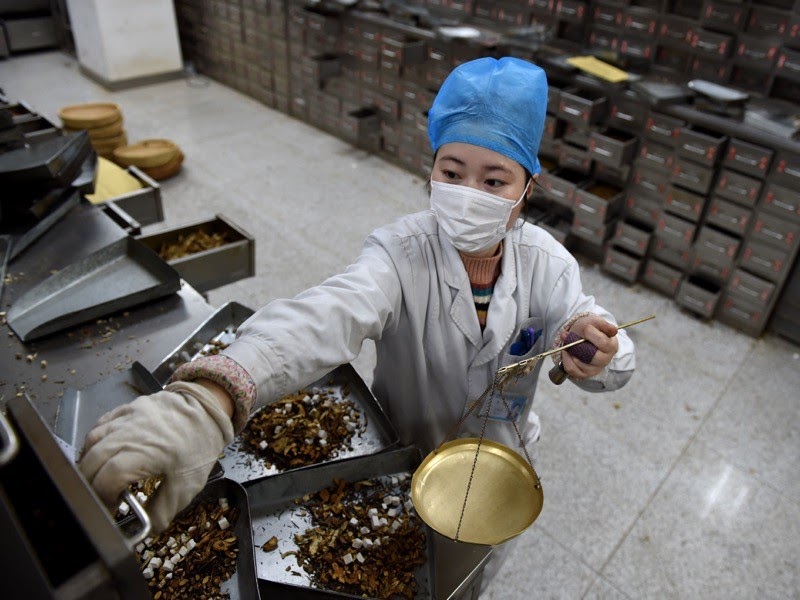Beijing’s plan to punish skeptics of traditional Chinese medicine
Last week, health authorities in Beijing unveiled a set of proposed regulations on traditional Chinese medicine (TCM) for public consultation. One article from the new regulations has drawn the ire of legal experts and people skeptical of TCM practices: Article 54 stipulates that those who “defame and slander” TCM are subject to punishment by public security departments or even face criminal responsibility for picking quarrels, causing trouble, and "disrupting public order,” a vaguely defined crime often used by Chinese law enforcers to police online speech.

Last week, health authorities in Beijing unveiled a set of proposed regulations on traditional Chinese medicine (TCM) for public consultation.
The new rules, proposed by the city’s Health Commission and the Municipal Administration of Traditional Chinese Medicine, are mostly in line with an existing campaign by China to promote TCM at home and abroad.
But one specific article has drawn the ire of legal experts and people skeptical of TCM practices:
Article 54 stipulates that those who “defame and slander” TCM are subject to punishment by public security departments or even face criminal responsibility for “picking quarrels, causing trouble, and disrupting public order,” a vaguely defined crime often used by Chinese law enforcers to police online speech.
The backlash was swift and severe, with a large number of observers calling the regulation an aggressive move on the government’s part to make TCM “beyond criticism and speculation.” Some also raised questions about the ambiguity in the definition of defamation and slandering, claiming that the vagueness would allow the government to interpret the article in any way it sees fit.
A Weibo user wrote (in Chinese): “It seems that TCM is not a science subject, but a political issue. I guess that’s why TCM advocates always say its effectiveness can’t be measured by scientific methods.”
In interviews with Caixin, a few legal experts cautioned that the draft regulation could “leave citizens criminally accountable for expressing criticism” about TCM, which has a reputation for “questionable scientific foundations and lax regulation.”
In response, a spokesperson for Beijing’s Administration of Traditional Chinese Medicine told (in Chinese) the Beijing News the regulation was “misread” by its critics. “Defamation and slandering are different from criticism and false arguments,” he said. The official also noted that the government was aware of the negative feedback and was open to make changes after the public consultation.
However, the explanation didn’t convince many critics. “How come a government department overseeing TCM has the right to regulate my exercise of speech rights on the internet?” a Weibo user commented (in Chinese).
Despite the limited scientific evidence substantiating its effectiveness, TCM has seen a rise in popularity and usage in recent years with the help of the Chinese government, which has increasingly sought to brand the therapies as a source of national pride and a form of China’s soft power. During the COVID-19 pandemic, a group of TCM experts was put in charge of a medical facility in Wuhan, which was purposely built to treat COVID-19 patients. Meanwhile, the National Health Commission included TCM in its treatment plan, recommending it to doctors as an effective tool to mitigate patients’ symptoms of fever and breathing difficulties.






